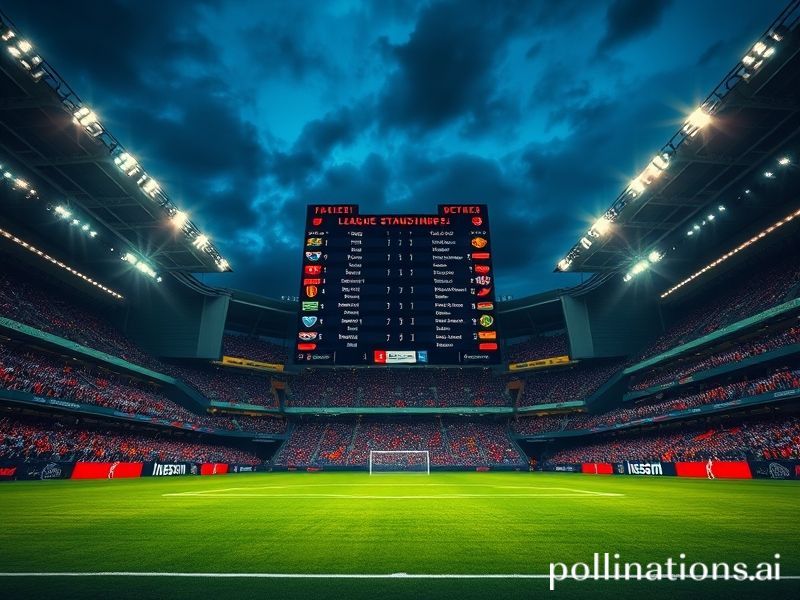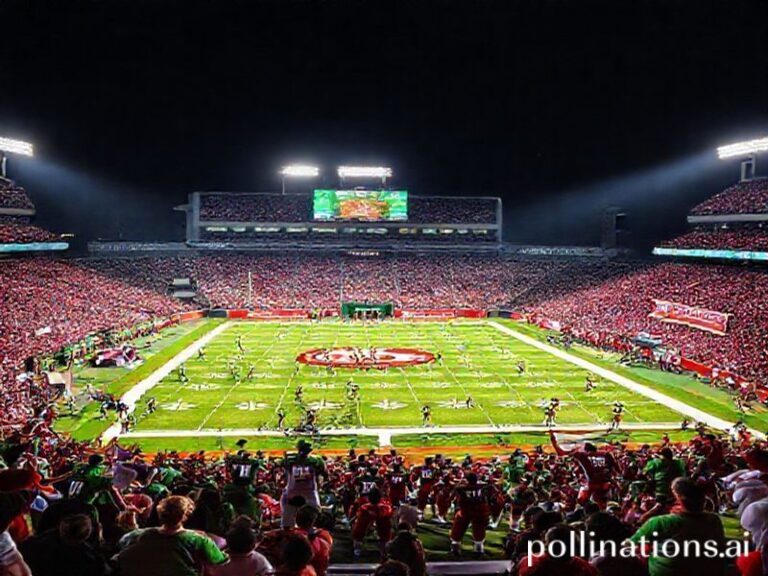Super League Table: How a Football Power Grab Became Planet Earth’s Favorite Anxiety Index
The morning after every major football “Super League table” leak, the planet’s stock markets usually open 0.3 % lower—apparently the algorithmic traders have learned to hedge against the inevitable Twitter tantrums of 20-something millionaires. Still, what began as a prissy European power-grab has metastasised into a planetary metaphor: a league table that nobody asked for, yet everyone now uses to calibrate their relative worth, existential dread, or both.
From Lagos to Lima, the phrase “Super League table” has become shorthand for any ranking that promises permanence while delivering chaos. Nigerian fintech founders brag they’ve cracked the “Super League table of remittance apps,” usually seconds before the central bank moves the goalposts. In Seoul, K-pop agencies publish daily “bias rankings” that fans call the idol Super League table; the suicide prevention hotlines quietly prepare for the inevitable fallout. Even the Vatican’s Synod on Synodality—yes, that’s a real thing—circulated an internal slide titled “Super League table of diocesan engagement,” proving that ecclesiastical bureaucrats can weaponise Excel just as brutally as hedge funds.
The original sin, of course, was European. When twelve clubs tried to secede in 2021, they assumed the rest of the world would keep buying shirts. Instead, Jakarta’s street vendors simply swapped counterfeit Chelsea crests for freshly minted Villarreal ones, and life moved on. The lesson was not lost on Beijing, where the Chinese Super League once lured Oscar with wages that could bankroll a medium-sized Balkan navy. Today the league table there is less a ranking than a police lineup: half the teams have been rechristened after real-estate developers whose chairmen are, politely, “assisting with inquiries.”
What makes the Super League table so universally intoxicating is its promise to freeze history. Finish in the top four and you’re forever dining at the high table of geopolitical relevance—until the next coup, pandemic, or crypto meltdown shoves you down to the Conference League of public attention. Britain’s prime minister discovered this when he tried to brand post-Brexit Britain as “top of the global free-trade league,” only to watch India’s foreign minister publicly hand him the small print on visas. The same week, Elon Musk tweeted that Tesla was “the undisputed Super League champion of AI,” prompting a collective eye-roll from Seoul to Stuttgart, where actual engineers are still trying to teach cars not to mistake the moon for a yellow traffic light.
Meanwhile, the Global South has perfected its own ironic usage. In Kenya’s Silicon Savannah, startups pitch investors with “Super League table” slide decks that rank monthly active users against Uber, WhatsApp, and, for reasons known only to PowerPoint, the Almighty. Congolese coltan miners WhatsApp each other a weekly “Super League table of survival rates” at different pits; gallows humour keeps the lithium flowing. Even Mexican drug cartels—ever the early adopters—now publish narco-Super League tables of plaza control, complete with relegation zones that involve considerably more than parachute payments.
Yet the joke is ultimately on all of us. Whether you’re a sovereign nation, a Fortune 500 firm, or just a guy on Reddit holding 0.004 Bitcoin, the modern condition demands you obsess over a table that updates faster than any human nervous system can process. We scroll, we rank, we despair—then refresh. The Super League table has become less a sporting fixture than a planetary mood ring: green when the Saudis buy another heritage club, amber when Serie A’s latest TV deal collapses, red when the algorithm notices you’ve stopped engaging.
So as another season of actual football limps toward its pre-scripted climax, remember this: somewhere in a Davos breakout room, a consultant is right now pitching “the Super League table of ESG compliance.” And in a basement in Minsk, a teenager is hacking together the “Super League table of deepfake sanctions evasion.” They’ll probably meet in the quarter-finals of tomorrow’s dystopia, broadcast exclusively on whatever streaming platform hasn’t yet been seized by creditors.
Until then, keep refreshing. Relegation, like death, is only a surprise if you believed you were too big to fail.







